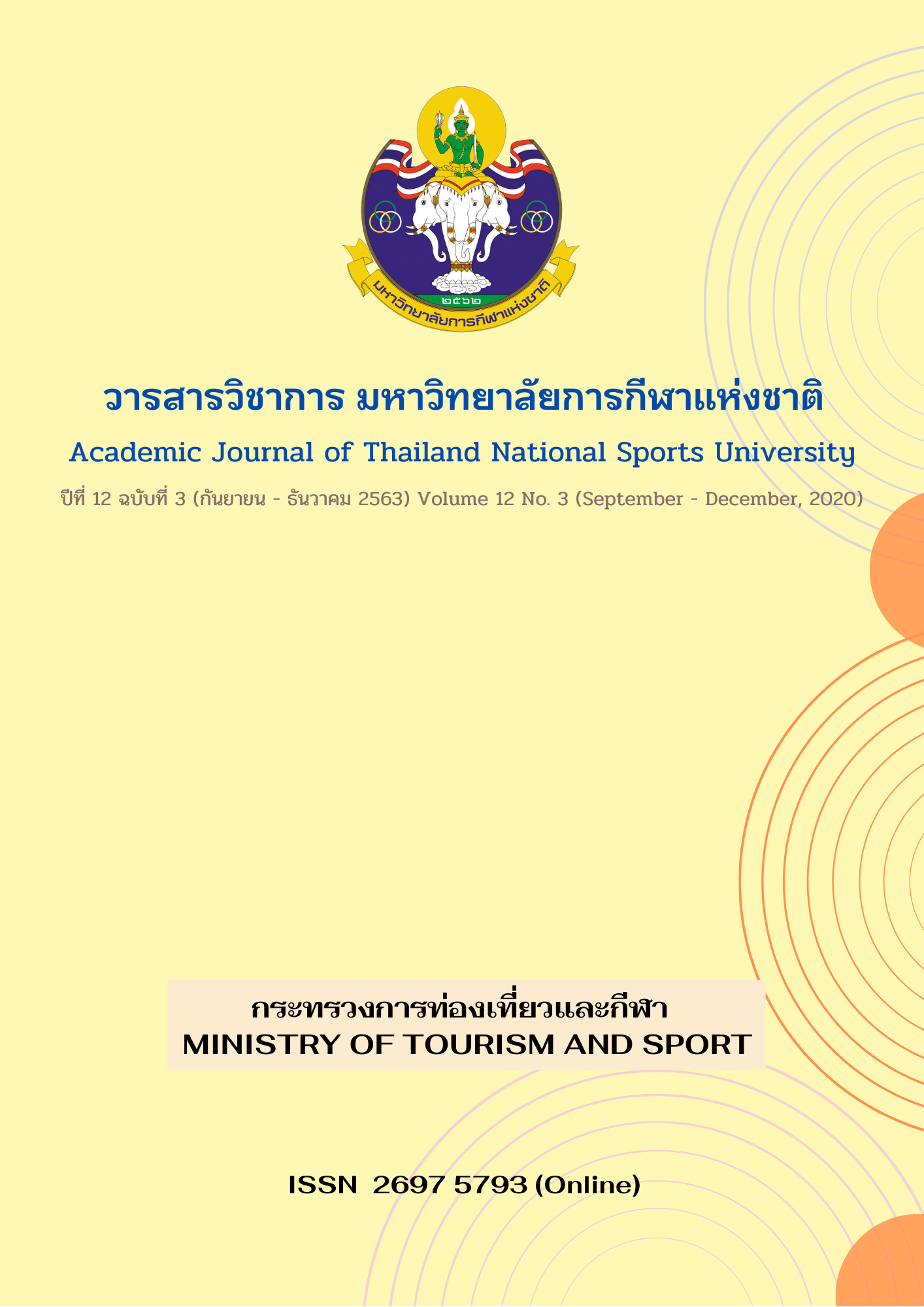MARKETING STRATEGY MODEL TOWARD CREATING SOUVENIRS OF THAILAND’S TOURISM IN ASEAN TOURISTS PERSPECTIVE
Main Article Content
Abstract
The research was aimed at studying 1) creative marketing strategy level on souvenirs for tourism in Thailand, 2) creative marketing strategy model on souvenirs for tourism in Thailand and 3) development of creative marketing strategy model on souvenirs for tourism in Thailand in perspective of tourists of ASEAN countries. The questionnaires were constructed as a research tool for collecting data from 883 tourists of ASEAN countries. The data were statistically analyzed by structural equation model analysis: SEM.
The results were found that creative marketing strategy on souvenirs for tourism in Thailand was practically at a high level ( =3.94), which included identity, image, price and promotion, and atmosphere respectively. The creative marketing strategy model on souvenirs for tourism in Thailand was created consistently and fitly with empirical data and casual relationship model showed that perception of souvenir sale at tourist attractions, media and souvenir categories for tourism in Thailand were correlated with creative marketing strategy on souvenirs for tourism in Thailand at the statistical significance level of 0.05. Furthermore, the developed model had ability to predict at a good level and acceptably because the correlation was 88.6%.
Article Details
The published article is a copyright of the Academic Journal of Thailand National Sports University. The passage appeared in each article in this academic journal is a perspective of each author which is not related to the journal. Each author is required to be responsible for all components of his/her own article. If there are any mistakes, each author must be responsible for those mistakes on his/her own.
References
Byrne, B. M. (2001). Structural equation modeling with AMOS: Basic concepts, applications, and programming. Hahwah, New Jersey: Lawrence Erlbaum Associates.
Chalongsri Pimolsompong. (2012). Tourism Industry. Bangkok: Kasetsart University, Publishing.
Chanthat Wanthanom. (2009). Tourism Industry. Bangkok.
Chujai Khuharattanachai. (2003). Introduction to statistics. Department of Applied Statistics, Mahanakorn University of Technology.
Cochran, W. G. (2007). Sampling techniques. New York: John Wiley & Sons.
Cronbach, L. J. (2003). Essential of psychology testing. New York: Harper & Row.
Hoogland, J. J., & Boomsma, A. (1998). Robustness studies in covariance structure modeling: An overview and a meta-analysis. Sociological Methods and Research, 26, 329-367
Information Center Royal Academy. (2013). Dictionary of Royal Academy 2009. Retrieved from http://rirs3.royin.go.th/word25/word-25-a0.asp
Kelloway, E. K. (1998). Using LISREL for structural equation modeling. New Jersey: Sage Publication.
Kline, P. (2002). An easy guide to factor analysis. London, New York: Routledge.
Montri Piriyakul. (2010). Partial Least Square Path Modeling PLS Path Modeling.
Academic Conference on Statistics and Applied Statistics 11th, 2010. Chiang Mai.
Nonglak Wiratchchai. (2008). (LISREL): Analytical statistics for research in social science
and behavioral science. Bangkok. Chulalongkorn University, Publishing.
Pathanapong Charernchai. (2011). Behavior of Thai tourism toward hands craft souvenir in Udon Thani. Mahasarakham. Mahasarakham University.
Pensri Charernvanit, Boonlert Leksomboon, and Sureerat Techataweenwan. (2013). Development of tourism souvenir market in Northeastern Thailand. Khon Kaen University.
Saris, W. E. & Strenkhors, L. H. (1984). Causal modeling non experimental research: An introduction to the lisrel approach. Dissertation Abstract International. 47(7), 2261-A.
Silván, M. (1999). A model of adaptation to a distributed learning environment. Department of Education, University of Jyväskylä.
Suchart Prasittirathasin. (2008). Multivariate Analysis Techniques for Research Social Science and Behavioral Sciences. Bangkok: Leaingcheing Publishing.
Suttichai Panyaroj. (2013). Creative tourism. Journal of TPA News, 119(7), 43-44.
Suvimol Tirakanan. (2007). Research methodology in social sciences: Practical guideline. Bangkok: Chulalongkorn Printing.
Thailand Development Research Institute. (2012). Complete report for education project master plan for tourism development in Thailand. Bangkok: Thailand. Bangkok: Office of the permanent secretary.
Tourism Authority of Thailand. (2014). Charm of the civilization of the south-east cultural route. Bangkok: Office of Tourism Authority of Thailand.
Tourism Economy and Sports Division. (2017). Statistics of the tourism that enter Thailand in December 2018. Ministry of Tourism and Sports.
Wearne, N. & Morrison, A. (1996). Hospitality Marketing. Oxford: Butterworth, Heinemann Ltd.
Wanna Wongwanij. (2012). Tourism Geography. Bangkok: Thammasat Printing House.
Yamane, T. (1973). Statistic: An Introductory Analysis. New York: Harper & Row.


